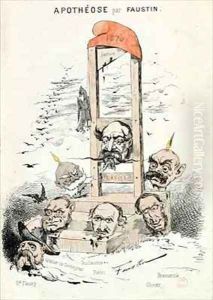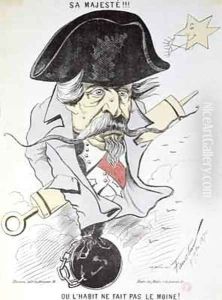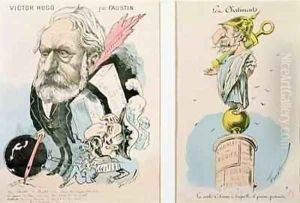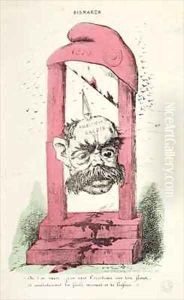(Faustin Betbeder) Faustin Paintings
Faustin Betbeder, often known simply as Faustin, was a French artist and caricaturist born in 1847 and who passed away in 1914. His work is most notable for its sharp wit and the elegant, yet often biting, critique of the social and political mores of his time. Born in an era that was rich in artistic innovation and political turmoil, Faustin carved a niche for himself through his distinctive style of caricature, which blended humor with incisive social commentary.
Faustin's career as an artist began in the vibrant cultural milieu of Paris, where he quickly established himself as a talented caricaturist. His works were regularly featured in prominent periodicals of the day, such as 'Le Charivari', a testament to his popularity and the relevance of his artistic commentary. Faustin's art captured the essence of Parisian society, poking fun at the pretensions of the bourgeoisie, the follies of the aristocracy, and the absurdities of political life. Through his pen, Faustin became a keen observer of the human condition, using his art to reflect on the vices and virtues of his contemporaries.
Despite the humor in his work, Faustin was also capable of conveying a deeper sense of critique and reflection on the issues of his time. His caricatures were not merely for entertainment; they served as a form of social criticism, highlighting the injustices and inequalities of the French society. This dual capacity to amuse and provoke thought is what set Faustin apart from many of his contemporaries and has contributed to his enduring legacy in the world of art.
After his death in 1914, Faustin's work continued to be celebrated for its artistic merit and its insightful commentary on the social and political landscape of late 19th and early 20th century France. His caricatures remain a valuable historical resource, offering a window into the cultural and societal dynamics of his era. Through his art, Faustin Betbeder remains a compelling figure in the history of French caricature, remembered for his sharp wit, his keen observation, and his ability to capture the spirit of his times.



